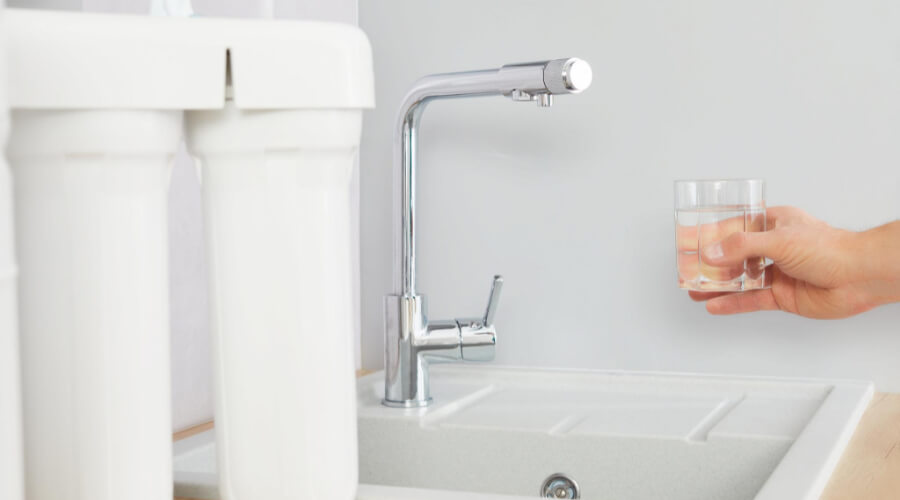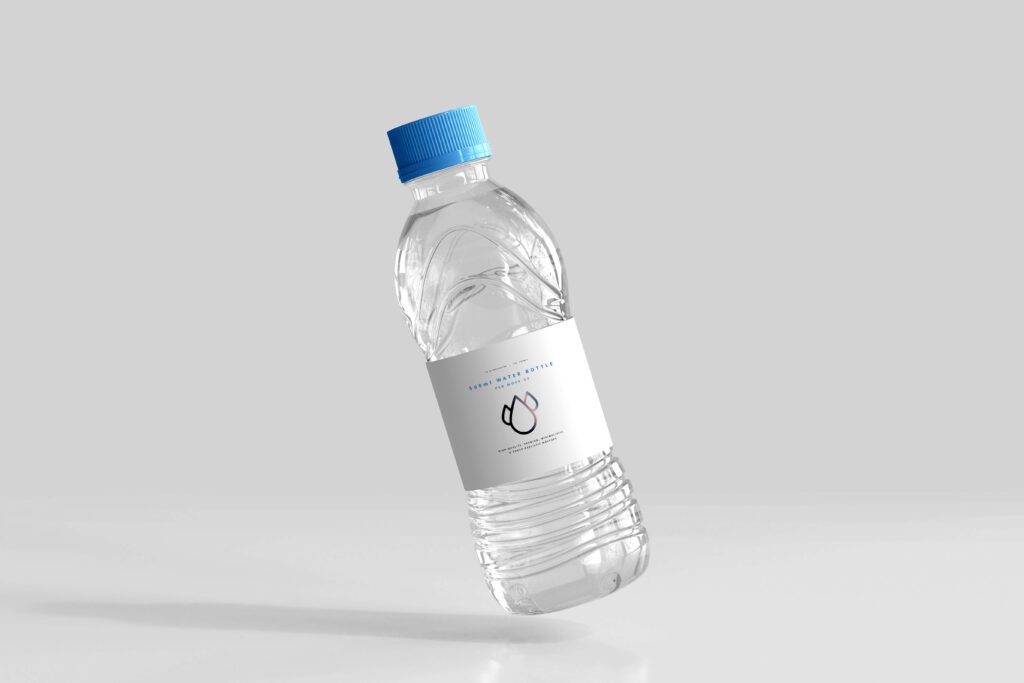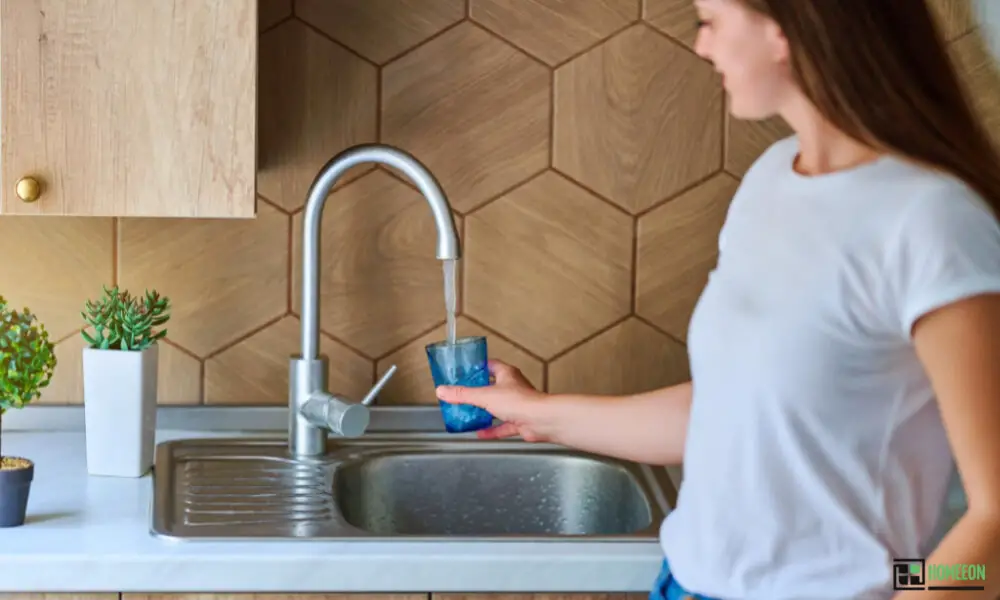Last Updated on August 14, 2023 By Emma W. Thomas
Drinking tap water from the bathroom is generally not recommended due to potential contamination risks. Bathroom faucets are often connected to separate plumbing lines, raising the likelihood of microbial or chemical contaminants. It’s safer to consume water from kitchen faucets, which typically have dedicated, safer water sources.
Is Drinking Tap Water From Bathroom Safe For You?
While many people resort to drinking tap water from the bathroom when in haste or out of convenience, questions often arise about its safety. This article provides insights into the potential implications of consuming bathroom tap water.
1. Potential Differences in Water Quality:
Both kitchen and bathroom taps generally connect to the same plumbing system, which should theoretically supply the same quality of water. However, the problem arises if houses have separate smaller tanks for bathrooms, which can potentially lower the water quality. Further, bathroom taps are typically less used, potentially causing stagnant water, which might breed bacteria.
2. Plumbing Materials and Contaminants:
The material of your plumbing can significantly affect the safety of your tap water. Older homes with lead pipes are hazardous as lead rust can contaminate the water. Even copper and PVC pipes pose risks if they erode or leach chemicals.
3. Presence of Microorganisms:
Bathroom taps, especially those seldom used, may harbor bacteria, including Legionella pneumophila, which can cause Legionnaires’ disease when ingested or inhaled as mist.
4. Cold or Hot Water:
Unventilated hot water tanks present a high risk. These can become breeding grounds for bacteria due to their tendency to sit at lukewarm temperatures for extended periods without being emptied or cleaned.
5. Water Treatment:
In regions where tap water undergoes rigorous treatment processes and regular testing to ensure it is safe for consumption, drinking from bathroom taps may be safe. However, in regions where this is not the case, it may pose risks.
| Key Considerations | Brief Description |
|---|---|
| Water Quality | Ensure the water is from a safe source and is not stored in a separate tank |
| Plumbing Materials | Check if your home does not have older pipes that can contaminate the water |
| Microorganisms | Bacteria can breed in bathroom taps that are not frequently used |
| Cold or Hot Water | Hot water tanks can harbor harmful bacteria |
| Water Treatment | Ensure tap water undergoes regular testing and is deemed fit for consumption |
How Does The Water Of A Storage Tank Get Infected?
Many people have storage tanks in their houses and their bathroom taps are connected to those tanks. If you have the same arrangement in your house, never drink tap water from the bathroom. While you store the water in the tank, different types of germs and substances get mixed with the water. An uncleaned tank contains germs and other harmful particles. Your local municipality releases chlorinated water so that the water doesn’t get infected. Chlorine and chloramine are highly effective as a disinfectant. But when the chlorinated water gets exposed to air inside the tank, the impact of chlorine reduces. Then, the water gets infected with invisible germs and bacteria easily.
Important Facts about Drinking The Tap Water From A Bathroom
| Fact | Description |
|---|---|
| Quality Concerns | Tap water from a bathroom may not be as fresh as kitchen tap water due to lesser use, leading to prolonged stagnation. |
| Lead & Copper Risk | Older houses may have lead pipes in bathrooms, which may pose a risk of lead or copper contamination. |
| Risk of Germs | Bacteria and viruses present in bathroom environments, especially from flushing toilets, potentially contaminate bathroom tap water. |
| Potential Temperature Issues | Due to potential hot water mixing with cold in some bathroom systems, there may be a risk of hot and therefore potentially scalding water. |
| Taste Difference | Bathroom tap water may taste different due to the difference in pipework and the potential use of longer plastic pipes which can impart a plastic taste. |
| Legality | In some places, it’s illegal to use bathroom tap water for drinking due to health regulations. |
| Not Recommended | Despite these risks, it’s crucial to note that drinking bathroom tap water is not generally recommended. It is safer to consume water from a kitchen faucet as it is frequently used and closely monitored for quality. |
How Can The Water Of Your Local Supply Line Be Infected?

Municipalities supply water to houses through pipelines. Most of those pipelines are old and contain lead as the main component. As you know, lead is a toxic element that can make the water unsafe for drinking. Most of the municipal water supply pipes are not renovated and still contain lead elements. That’s why water from direct supply lines is not always safe for drinking. Especially, if you have a kid at your home, never allow him/her to drink water from the bathroom tap.
What Can Happen If You Drink Bathroom Water On A Regular Basis?
If you’re drinking tap water from the bathroom on a long-term basis, you might face numerous health hazards. From the kidneys to the skin, contaminated water has a worse impact on your important body parts. Moreover, the chances of waterborne disease become higher when you drink tap water from the bathroom.
1. You might have an encounter with waterborne diseases like- cholera, typhoid. Such diseases can appear in severe forms and can sustain for a prolonged period. Such diseases occur due to the presence of germs and bacteria in the tap water.
2. The water of your bathroom’s tap can contain nitrates that have a negative impact on human bodies. Those nitrates turn into nitrites when they reach your intestines. Nitrites interrupt the normal oxygen flow through blood in your body. Kids and infants are more likely to suffer from this problem as they have lower resistance power. Once your kid gets diagnosed with such an issue, it will take a long time for him to recover.
3. The presence of unknown pathogens can cause critical gastrointestinal ailments in children and adults. Indigestion and gastrointestinal dysfunction are more likely to happen due to the regular intake of unfiltered tap water.
4. Numerous skin diseases are also possible if you drink tap water without filtering that. There are several skin diseases that are caused by intaking contaminated water.
5. It’s not favorable for you if lead particles get inside your body with the water that you drink. That can most possibly happen when you’re drinking water from your bathroom’s tap. That affects your kidneys directly and causes high blood pressure as well. Kidney diseases that happen due to lead can’t be cured easily.
6. Sometimes, your bathroom tap’s water might contain minerals in excessive amounts. Excessive amounts of minerals get stored in your kidney during excretion. That can lead to serious kidney damage.
These are the main problems that can happen if you drink water from the bathroom tap frequently. If you want to prevent these unfortunate diseases, stop drinking water from your bathroom tap.
Is Bottled Water A Safe Option?

Bottled water can definitely be a safer option than tap water in your bathroom. But not all people can afford to drink bottled water regularly. The economic factor comes in front in terms of drinking bottled water. Moreover, you are not free from risks, even if you’re drinking bottled water. The water-containing bottles are mainly made of plastic. When such a bottle gets filled with water, the water comes in touch with the plastic substance. Research has clearly shown the presence of microplastics in bottled water. As you know, plastic is never a good material for your body. Microplastics can affect the human body in a worse way than other contaminants do. That’s why bottled waters also haven’t got clean chits from scientists and health experts.
What Are The Differences Between Bottled Water And Tap Water?
| Bottled Water | Tap Water |
| Usually, bottled water doesn’t contain chlorine and fluoride. Therefore, bottled water is a safer option. | Additional minerals and flavors are added sometimes to bottled water for taste. |
| Additional minerals and flavors are added sometimes in bottled water for taste. | You won’t find additional minerals apart from chlorine and fluoride. |
| The Food and Drug Administration regulates the supply of bottled water, and bottled water is an expensive option. | The Environmental Protection Agency regulates the supply of tap water, and tap water is way cheaper than bottled water. |
How Do You Understand If The Tap Water Of Your Bathroom Is Safe To Drink Or Not?
There are a few ways that can indicate if the tap water in your bathroom is safe or not. You must check those factors before intaking the water.
1. Pure drinking water isn’t supposed to contain a taste or smell. If the water of your bathroom tap doesn’t have a different taste or smell, you can drink that without any doubt. You will only get a different taste or smell from the water if that contains any other substance.
2. You should never drink a glass of water that looks cloudy or color is greyish. That indicates the presence of unsafe chemicals or compounds. Pure drinking water has to be transparent. If you’re getting cloudy water from your bathroom tap, quit drinking that as soon as possible.
3. If you’re feeling that the water output from the bathroom tap is getting harder than before, stop drinking that. Water gets harder due to the presence of calcium and magnesium in it. Many people don’t differentiate between normal water and hard water. You can detect hard water while washing your clothes. You will need more detergents when you’re washing clothes with hard water.
Basically, minerals like calcium and magnesium leave precipitations. If you leave a glass of hard water for some time, you’ll notice a small layer of precipitations at the bottom of the glass.
1. If you find a bluish or light greenish tinge in the water of your bathroom tap, it’s not safe for drinking. It can be a signal of the presence of copper in the water. Copper intake in an excessive amount can be threatening to your health.
2. Do you get a smell of bleaching powder from the tap water of your bathroom? It can be due to the excessive chlorine that is mixed into the water. Don’t drink the tap water if you get such a smell as excessive chlorine can lead you to cancer.
3. The presence of additional iron particles can give a metallic and salty taste to the water. Those particles can cause serious ailments as well. Therefore, you should refrain from drinking tap water if you get such a taste.
4. Components like barium and cadmium particles can produce a fishy smell when they get mixed with water. You should observe if you are getting such a smell from the tap water or not. If you’re getting such a smell, don’t take the risk of drinking the water. Cadmium is a mineral that is a leading reason for all forms of cancer.
Can I Purify The Water Of My Bathroom Tap By Boiling?
Some people are bound to drink water from their bathroom taps as they don’t have other choices. Boiling the water before drinking is a good option for additional safety. But that can’t give you complete protection from the diseases. When you boil the water, the germs and bacteria will get eliminated. But the minerals and inorganic substances will remain intact. So, you can’t get rid of all types of impurities of the water by boiling that.
How Can You Make The Water Of Your Bathroom Tap Drinkable?
If you have no other choice than to drink tap water, you should install a water filter. A high-quality water filter will be the best option to eliminate all the impurity of the water. A water purifier with advanced features will provide fresh and pure water that you can drink without any hesitation. You can install an instant filtration system in the main supply pipe of your house as well. That also can help you to get pure water.
Bottom Line
It will be a wise choice for you to refrain from drinking tap water from your bathroom. If you can’t afford to buy pure water every day, a water purifier will definitely help you. You must filter the tap water before you and your family drink that. Otherwise, try your best to avoid the tap water in your bathroom.
References:
https://thewaterprofessor.com/blogs/articles/is-it-safe-to-drink-tap-water-from-the-bathroom
https://www.bathroomcity.co.uk/blog/it-safe-drink-water-your-bathroom-tap
Emma is a graduate of Domestic Science or Family and Consumer Sciences (Home Economics) from the University of Wisconsin. She has 7 years of experience Working with the strategic section of BestBuy and now writing full-time for Homeeon.
From Managing the Home, Interiors, Cleaning, and Exteriors to Gardening and everything about Making A Home Liveable – is her passion and this Homeeon is the result of this.
Emma loves decorating her home with the best stuff found online. She cares about quality over anything and writes reviews about them here in Homeeon. Get in touch with her over Pinterest.
Keep reading her blogs.

